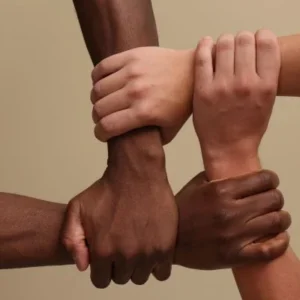Severe budget cuts in international aid are leaving the world’s most vulnerable populations without essential support. Across Europe and the United States, governments are slashing foreign aid budgets, redirecting funds toward domestic priorities or military spending. France has reduced its development assistance by hundreds of millions, while the United Kingdom, Germany, the Netherlands, and Belgium are scaling back commitments. In the United States, aid cuts worth billions have shaken global humanitarian operations, including reduced contributions to the United Nations.
The impact is immediate and devastating. By mid-2025, only a fraction of the $46 billion needed to address global humanitarian needs had been raised, marking a sharp decline from the previous year. The UN Office for the Coordination of Humanitarian Affairs has warned that this funding gap is forcing aid agencies into impossible choices, prioritizing who gets help and who is left behind. Health systems are collapsing under the strain, with the World Health Organization reporting the most severe disruption since the height of the COVID-19 pandemic. Medicines remain undelivered, clinics are closing, and millions are being denied life-saving care.
Refugees and displaced communities are among the hardest hit. In Uganda, where nearly two million refugees seek shelter, monthly aid has dropped from $16 to just $5 per person. In Kenya, food rations for hundreds of thousands of refugees have been cut to less than a third of the standard amount, while in Nigeria, aid programs face suspension, leaving over a million people at risk of hunger. Syria, still reeling from over a decade of conflict, has seen its humanitarian appeal for 2025 funded at only 14%, threatening the closure of health facilities and deep staff cuts.
Beyond these high-profile crises, neglected emergencies in the Democratic Republic of Congo, Sudan, Somalia, Yemen, Myanmar, and Haiti are worsening. Millions risk losing all aid, with hunger, malnutrition, and displacement intensifying. Haiti, in particular, has received less than 10% of the funds it needs, despite rising violence, school closures, and widespread child malnutrition.
UN agencies such as UNHCR, WFP, WHO, and UNICEF, which depend on voluntary contributions, have been forced to lay off staff and reduce operations. Local NGOs, especially women-led organizations, are also on the brink of collapse, with many warning they may shut down within months.
The cumulative effect of these unprecedented cuts paints a stark picture: millions of people deprived of food, healthcare, and safety at a time when humanitarian needs are at record levels. Without urgent and renewed international commitment, the consequences could be catastrophic for vulnerable communities worldwide.







